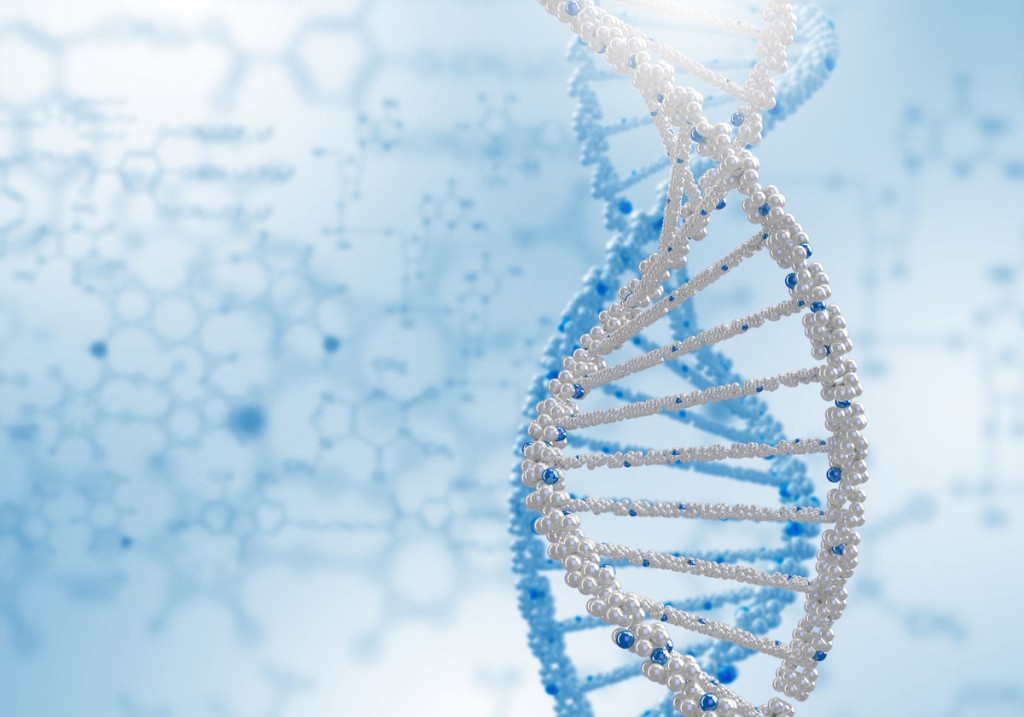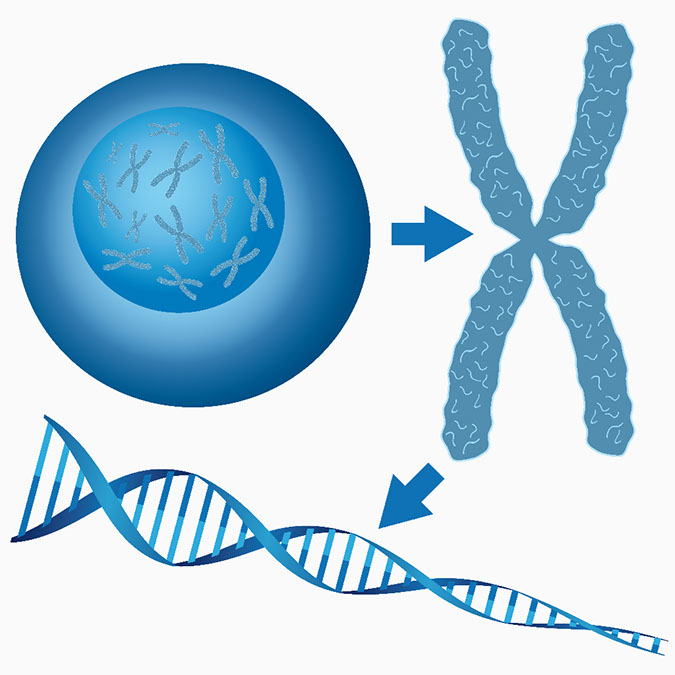Genetic disorders may cause severe diseases in humans and are known to have adverse effects on fertility, which may even lead to miscarriages. A closer look into these genetic disorders suggests that there are two main reasons for this:
Chromosomal disorders and gene mutations.
In chromosomal disorders, a distinction is made between numerical anomalies (changes in chromosome number – aneuploidy) and structural anomalies (changes in chromosome structure – e.g. translocations). According to experts, these chromosomal alterations are responsible for around half of all spontaneous miscarriages.
Gene mutations involve changes to the genetic makeup of a single gene, gene segment or several genes, resulting in so-called monogenetic or polygenetic diseases. One of the best-known examples of such a disease is cystic fibrosis – also known as mucoviscidosis – which is the most common inherited monogenic disease in Western Europe.
The linking of reproductive medicine and genetics is thus becoming more and more important. In this respect, it is worth mentioning the well-known term Pre-Implantation Genetic Diagnosis (PGD).
The use of Pre-Implantation Genetic Diagnosis (PGD)
PGD may be used in situations where couples with a history of a severe genetic disease want to avoid passing it on to their offspring, but also for the benefit of infertile couples who have gone through several unsuccessful IVF cycles or experienced miscarriages and where, on the basis of their clinical results, such an outcome can be attributed to genetic causes.
In the context of fertility treatment, PGD allows to examine the oocyte or the embryo prior to the transfer of the embryo to the woman’s womb concerning (see schematic representation)
- Chromosomal disorders (aneuploidy and, for instance, chromosomal translocation)
- and gene mutations.
(→ Detailed sequence of steps in the use of PGD with IVF treatment)
Pre-Implantation Genetic Diagnosis is a complex analytical procedure which cannot, however, provide results that are 100% accurate and which is no guarantee for achieving a pregnancy.
The use of PGD is previously discussed and jointly determined with the couple in accordance with their individual situation, which has been subjected to thorough analysis. This, of course, also involves detailed information on the relevant legal situation. The relevant legislation is regulated separately by each individual country in Europe, which means that there are differences in the permitted treatment and diagnosis options such as those of Pre-Implantation Genetic Diagnosis.
Pre-Implantation Genetic Diagnosis (PGD) Techniques
- “Next Generation Sequencing” (NGS)
- “Array-comparative genomic hybridisation” (aCGH)
- “Fluorescence in situ hybridization” (FISH)
- Karyomapping
- “Polymerase Chain Reaction” (PCR)
The Objective of Genetics in Reproductive Medicine
To sum up, the objective of using genetics in reproductive medicine is to determine in detail the genetic influences on human reproduction and to identify or exclude negative impacts by using state-of-the art diagnostic methods in fertility treatment. As a result the chances of an intact pregnancy and the birth of a healthy child can be increased.
Fertility Treatment with the use of PGD
- The use of PGD will be decided upon jointly with the couple in accordance with the individual situation and the existing results.
- It is an analytical and diagnostic procedure and does not constitute any guarantee for a pregnancy in the future.
- The method is designed to retrieve cell material from an oocyte or an embryo prior to its transfer to the womb. The biopsied cells are analyzed for possible genetic disorders.
- PGD enables the screening for chromosomal defects and the diagnosis of genetic diseases.
Links:
» Genetics in the context of fertility treatment
(Topic-Special | https://www.fertility-treatment-blog.com)
(Start page | https://www.fertility-treatment-blog.com)
(Page | https://www.fertility-treatment-blog.com)

















